
Rabbi's Abuse Victims Suffer Years Later
Phil Jacobs
APRIL 13, 2007
This article is part of a continuing series on child molestation within the Jewish community.
Photographer Murray Levin has looked through his camera lenses countless times, capturing Jewish weddings, bar mitzvahs and other joyous events. The one "picture," however, he can't stop focusing on isn't in his camera but in his 64-year-old memory.
 |
It's an image of a bar mitzvah lesson at the old Agudas Achim Synagogue. It's the shame that came along with his teacher, the now-deceased Rabbi Ephraim F. Shapiro, placing his hand down the 12-year-old Murray Levin's pants and fondling him.
With at least half a dozen maftir lessons came the rabbi's touch.
But it wasn't just Murray Levin.
The former Talmudical Academy principal, by one influential Baltimore rabbi's estimate, molested hundreds of times.
Bob Glickstein, 65, another survivor of Rabbi Shapiro's fondlings, figures it could be thousands. One thing that hasn't survived for Mr. Glickstein is any connection to Judaism. Living now in Vero Beach, Fla., this yoga instructor calls his bar mitzvah day "the worst day of my life, because I had to have Rabbi Shapiro there."
Mr. Glickstein married out of the faith, had a child and raised him as a non-Jew. He not so jokingly calls himself an "anti-Semite."
This was part of the cost of Rabbi Shapiro's actions.
Rabbi Shapiro, who died in April 1989, remains "alive" in the memories of so many. His collateral damage is everywhere. A weekly Kiddush of respected businessmen meets, and the topic invariably turns to the sexual molestation the rabbi heaped on many of them.
Several local rabbis recently expressed profound compassion for the victims, encouraging them to seek qualified, professional help. Indeed, at two major Orthodox synagogues on the last day of Passover, rabbis spoke from the pulpit on the issue of child molestation. The Vaad Ha Rabbonim in a meeting last week issued a statement to the community condemning sexual molestation and supporting survivors to seek help.
The following are interviews with three of the rabbi's "survivors."
If you are a survivor or if you know of someone who survived any sexual molestation, you have an audience here.
Murray Levin
The way Murray Levin sees it, sexual predators live in a world of "no risk and total reward."
Organized Judaism — be it congregations, schools or community groups — buries this news or distracts, he said.
"I don't think they see themselves getting apprehended," Mr. Levin said of predators. "They are bright people, great communicators and intellectual. And they will continue until we bring out the trauma they cause. We have to create an environment that shows them they can't continue without severe consequences."
Mr. Levin held his molestation in for decades. He does not want anyone else to hold back. Most of all, he sees it as a calling that older survivors must do what they can to protect all future generations, even if it means "teaching little children to speak out."
"Families," he said, "are going to have to speak up. We have to become the predator of the predators."
Mr. Levin was molested by Rabbi Shapiro and by one other person connected to the Agudas Achim Synagogue in the 3600 block of Reisterstown Road near Cold Spring Lane. He was studying for his bar mitzvah, which would take place at Shaarei Zion Synagogue.
"Rabbi Shapiro was grooming me with French kissing and masturbation," said Mr. Levin.
Mr. Levin kept it all quiet. He didn't know that there was a possibility of someone else involved until four years after his bar mitzvah. He was watching a football game on TV with a couple of friends. The friends pretended to tackle one another like football players, and one of them randomly said, "Rabbi Shapiro stuck his fingers in my ass."
That was Mr. Levin's first clue that he wasn't alone.
In between his molestation, Mr. Levin — who would lead junior services in shul and who described himself as a gifted and talented child, captain of the safety patrol, and concert master of his high school orchestra — began to fall internally. His image of self, his trust in boundaries and other people failed.
To this day, even though he makes a great deal of his living photographing the Jewish community, Mr. Levin wonders what might have been with his life had it not been violated.
"Many of us are still hiding," he said with a quiet voice.
"To me, anybody could be a pedophile," he said. "Everybody who works with or who is near our children need to be scrutinized. I want everyone to be aware of who you pass responsibility of your children to. I would like to see these predators at least be given an opportunity for rehabilitation, to be useful. But they have to be compelled to seek help. Also, people need to know who the pedophiles are, if they are alive or if they are dead. "
Bob Glickstein
He doesn't want much to do with Judaism.
He can still "feel" the texture of Rabbi Shapiro's mustache against his face when he was being kissed.
Bob Glickstein's Jewish "upbringing" ended during his bar mitzvah lessons with Rabbi Shapiro at Agudas Achim.
"He used religion to molest young boys," said Mr. Glickstein.
Mr. Glickstein talks candidly in a Vero Beach coffee bar called Cacophony. He has only told a couple of people about his molestation.
But he wants the word out there now.
"Rabbi Shapiro knew what he was doing," said Mr. Glickstein. "He had a boys group he called the Akiba Boys of Agudas Achim. They would do chores around the shul. But meanwhile, he was molesting them. He had a system of bar mitzvah lessons that would feed into his molestation. Everything he did was about molesting boys.
"It was a horrific experience," he added. "He would call me into his office. He'd start playing with you."
It was difficult for Mr. Glickstein to continue. He sat up straight, perhaps finding confidence in a yoga posture, and he remembered some more.
He called his bar mitzvah the worst day of his life, because Rabbi Shapiro was in attendance. The rabbi was also at his father's funeral.
Mr. Glickstein kept it to himself, yet he used it as part of his influence to start looking into other religions, such as Eastern religions. A short marriage to a non-Jew resulted in a son, whom he raised out of the faith.
There was nothing joking about this comment on his face. "I am basically anti-Semitic," he said. "I like Jews, but I just need to stay away from them [as a result of his molestations].
"There's always been a lot of fear and anger in my life that comes as a result of Rabbi Shapiro's actions," he said. "There's never a time that passes that I don't think about him. There's anger and there's fear."
Mr. Glickstein said that he's always had difficulty since the molestations, which happened four to six times, when it comes to authority figures and establishing close relationships.
David Framowitz
David Framowitz was an 11th-grade Talmudical Academy student from Brooklyn, N.Y., boarding in the school's dormitory. He said he was molested by Rabbi Shapiro on three separate occasions.
When Rabbi Shapiro attempted a fourth try, the high school junior threatened to kill the rabbi.
Mr. Framowitz, 49, remembers that Rabbi Shapiro was the dormitory counselor. He would lie in the beds of students, reaching to fondle them. And it was common he'd try to kiss them on the lips.
Mr. Framowitz, who now lives in Israel, was a major source for a New York Magazine article last year based on his $20 million federal lawsuit against Rabbi Yehudah Kolko and Yeshiva Torah Temimah of Flatbush in Brooklyn. (Mr. Framowitz said Rabbi Kolko molested him when he was around 12.)
"I became a student for seven months [at] TA in Baltimore," said Mr. Framowitz. "I had Rabbi Shapiro attack me three times. The last time I told him, ‘You touch me one more time, I'll kill you.'
"He was the dorm counselor. He'd walk around and French kiss boys, poke them with his fingers. He'd lie across you when you were in bed. He'd play with you."
Mr. Framowitz would tell his mother, who insisted he leave TA immediately. None of the other boys he knew wanted to discuss Rabbi Shapiro.
He then gave several reasons why people stay so silent. "There's a fear factor," he said. "There's a worry over shidduchim [finding a match for marriage]. ‘What are the neighbors going to say? It can't happen to a nice Jewish family. A rabbi doesn't do these things, especially a frum rabbi. There's something wrong with the boy. It's not the Jewish way, it's not the frum way. It can't be.'"
Last September during a visit to Baltimore, Mr. Framowitz decided to pay an unscheduled visit to Talmudical Academy. It was his first time there since 1974.
He met with Rabbi Yehuda Lefkowitz, the school's executive director. "I told Rabbi Lefkowitz that I was a victim of Shapiro's," said Mr. Framowitz. "I told him I thought there should be some sort of monetary scholarship fund to pay for the therapy of the victims."
Rabbi Lefkowitz informed the school's board, and grimly said "nobody took it as a joking matter."
Mr. Framowitz said he thinks there are well over 1,000 people who were molested by Rabbi Shapiro.
"The guy was a real sicko," said Mr. Framowitz. "He was worse than Kolko. I've made it through my life, but this is something you don't forget ever. It's always with you, always there. And if I'm not busy or not doing things, my mind wanders back to those days."
Rabbi Shapiro Is Deceased. Why Print This?
"He can't defend himself."
"He's deceased, what difference does it make now?"
"This is an embarrassment to his family."
These are just three of the reasons why we were asked not to print the name of the deceased Rabbi Ephraim F. Shapiro. Pikesville area mental health professionals offer suggestions to several concerns.
• "He can't defend himself."
He died in 1989. He was eulogized before 700 people as a "man of deep religious devotion, Torah scholarship and gentle kindnesses, to his family, his students and to many in the community."
There are estimates of hundreds of molestation victims who weren't able to "defend" themselves while the rabbi was alive. There are young men whose lives were changed forever because of his acts. Some of these men are more figuratively "dead" than Rabbi Shapiro will ever be. They need our help, compassion and therapeutic assistance. It wasn't their fault. They can perhaps heal now.
• "He's deceased, what difference does it make now?
Survivors may find answers and empowerment if they know that their molester was actually a survivor of Rabbi Shapiro's. Mental health professionals are legally obligated to report deceased perpetrators to Protective Services. The ensuing investigations focus on all of the perpetrator's survivors, and the subsequent possibility that they have or are currently molesting children as well. Given the reality that survivors are vulnerable to molesting others, and the cycle continues to perpetuate itself, it is imperative that the names of all perpetrators –– dead and alive –– are disclosed.
• "This is an embarrassment to his family."
The models of discussion and behind-the-scenes declarations against molestation are not working, suggest one therapist, especially in the Orthodox community. At best, a person is taken away from a setting of teaching children, or sometimes sent out of town. Arrests, the courage of a survivor to charge his molester, don't happen a great deal of the time.
Names.
Perhaps if a pedophile knows that this is now about names and his association to names of innocent relatives. Perhaps, just perhaps, that will keep another child safe for a day.
Who Was Rabbi Shapiro?
Rabbi Ephraim F. Shapiro was the former principal of Talmudical Academy. His April 1989 funeral services were held at the Old Court Road yeshiva.He was 72 when he died of amyotrophic lateral sclerosis, or Lou Gehrig's disease.
Rabbi Shapiro was the son of Russian immigrants. He was born on New York's Lower East Side. A graduate of the Rabbi Jacob Joseph School and Yeshiva University, Rabbi Shapiro came to Baltimore in 1941 as spiritual leader of Congregation Agudas Achim.
He left in 1955 to become rabbi of a congregation in New Rochelle, N.Y. Two years later, he returned here to become the rabbi at the Tifereth Israel Anshe Sphard Congregation on Dolfield Avenue. He held that position until 1968.
In addition, he served as principal of TA, as well as working as a guidance counselor and a dorm counselor. When he retired in 1982, he was honored for 25 years of service to the yeshiva.
E.J. Dopkin says she, too was molested by Rabbi Ephraim Shapiro decades ago.======================================
This is Ephraim Shapiro's son, Yisroel Shapiro; who is following in the footsteps of his infamous father.
Case of Rabbi Yisroel I. Shapiro

(AKA: Yisroel Shapiro, Israel Shapiro, Joseph Shapiro)
Baltimore, MD
Background HistoryMay 28, 2003 -- The Rabbinical Council of America (RCA) maintains that reporting acts or suspicions of child abuse is not mesirah and commits itself and its members to reporting acts or suspicions of child abuse as required by civil law. Unfortunately the rabbis of Baltimore have never adopted these policies.
One of the many traditions in the orthodox community of Baltimore is not to report sex crimes to law enforcement or Child Protective Services (CPS). The reason was for fear that doing so would start another pogrom (persecution of the Jewish people).
Instead the custom has been for rabbis to handle things quietly and discreetly. It's also not uncommon for signs to be posted by concerned community members warning others of the dangers the alleged sex offender poses to children.
This is exactly what happened a few years ago. Allegations were made that a teacher by the name of Rabbi Yisroel Shapiro had molested children. The pious rabbis of Baltimore decided they could handle the "situation" on their own. A decision was reached. The rabbis at the bet din of Baltimore (Jewish religious court) believed Yisroel was guilty. The agreement was that Yisroel Shapiro would have a career where he no longer had contact with children. Yisroel Shapiro went from being a teacher at one of Balitmore's private Jewish schools to becoming a butcher.
Israel Shapiro is married and had children living in his home. Child Protection Services (CPS) was never notified, nor was a police report made, making it virtually impossible for there to be an official investigation, possible arrest and or trial. Without the proper law enforcement officials being notifide, it makes it impossible for Yisroel Shapiro ever being listed on the national sex offender registry.
As a reaction, a small group of concerned citizens created flyer's and posted signs in the community in hopes of preventing another child from being molested, yet not much has happened since then.
One of the issues that we all need to be aware of is the fact that Yisroel Shapiro's father was a prominent orthodox rabbi in Baltimore. Besides being a synagogue rabbi, his father was the principal of a the Talmudic Academy of Baltimore. His father was connected to may other prominent orthodox rabbis in Baltimore and worldwide. Recently one of Baltimore's deep dark secrets was made public. Yisroel Shapiro's father, also had a problem with his "urges". Rabbi Ephraim Shapiro had been allegedly molesting boys for over fifty years. One survivor stated he was sure thate Ephraim Shapiro molested hundreds if not thousands of bar mitzvah age boys.
The way the ultra-orthodox rabbis of Baltimore operate is very similar to the way the Catholic church deals with allegations of clergy sexual abuse. It appears the rabbis do what they can to silence the victims. It also seems as if they rabbis are more concerned with protecting their own personal images and assets, then they are in keeping the Jewish children of Baltimore safe.
Can you imagine the PR nightmare the rabbis of Baltimore were faced with? How would they do damage control?
Many survivors of Rabbi Ephraim Shapiro have stated that they were sure the rabbis of Baltimore were very aware of that he was an "alleged" child molester. A few years ago the rabbis were faced with the fact that the son of this prominent rabbi, was also allegedly molesting children. Instead of doing the right thing and notifing the police and child protective services, they chose to handle the matter on their own.
Keep in mind that Yisroel Shapiro's brothers also hold very prominent positions in Baltimore and around the country. The tradition has always been to protect family members of sex offenders over protecting family members of sexually abused children. As a community we need to understand that family members of both offenders and those who have been sexually violated need support. They are not responsible for the actions of the offender, except if they willingly cover up these crimes -- which could lead to more children being abused. The problem is that all parties involved need counseling. Sex offenders need to be held accountable for their crimes and can receive treatment in prison and often will need residential treatment after they are released. Survivors of sex crimes need both rape victim advocacy and counseling.
It's unknown at this time if the children who were allegedly victimized by Yisroel Shapiro ever received rape crisis counseling. It is also unknown if Yisroel Shapiro ever received sex offender treatment by a qualified mental health provider.
There is no statute of limitations on crimes against children. It's not to late to file a police report and have him investigation. If you or someone you know was victimized by Yisroel Shapiro please contact your local rape crisis center. They are there to protect your rights and can help you make a police report. Rape crisis center's offer free rape counseling and legal advocacy.
One of the local rape crisis center's near the Jewish community in Baltimore is:
STTAR Center
(Sexual Trauma Treatment, Advocacy and Recovery Center)
Main Number: 410-290-6432
24-hour Hot-line: 866-723-3003
Failure to protect the vulnerable is a violation of the following verse: Thou shalt notstand idly by the blood of your neighbor (Lev. 19:16) -- "Whoever desecrates the name of Heaven in private will ultimately be punished in public, whether the desecration was committed unintentionally or intentionally." Any conspiracy to conceal information about sex crimes will ultimately be made public, creating an even greater hillul Hashem. -- Despite historic debates and arguments, the consensus of contemporary Jewish religious authorities is that such reporting is religiously mandatory. (Rabbi Mark Dratch).
If you suspect that a child is being abused or neglected in the state of maryland, you should call: (800) 332-6347
October 24, 2004
The following flyer was posted in the Jewish community in Baltimore as a way to warn community members of the allegations made against Rabbi Yisroel Shapiro.

Case of Rabbi Ephraim F. Shapiro
(AKA: Ephraim Shapiro, Frank Shapiro, Ephraim Frank Shapiro)

Rabbi - Congregation Agudas Achim, Baltimore, MD
Rabbi - New Rochelle, NY
Rabbi - Tifereth Israel Anshe Sphard Congregation, Baltimore, MD
Former Principal - Talmudical Academy (TA) - Baltimore, MD
Accused of molesting several boys for over a fifty year period. Rabbi Shapiro was born in New York on July 22, 1916, and died April 7, 1989, in Baltimore, MD. His name is listed on this web page as a way of validate and empowering those he allegedly sexually abused.
Rabbi Ephraim Shapiro was a graduate of the Rabbi Jacob Joseph School and Yeshiva University, New York, NY. He moved to Baltimore in 1941 to serve as the spiritual leader of Congregation Agudas Achim. In 1955 moved to New Rochelle, NY and then returned to Baltimore in 1957 to serve as rabbi at Tifereth Israel Anshe Sphard Congregation and also the principal of the Talmudical Academy until retiring in 1982. While working at the Talmudical Academy, Rabbi Shapiro worked as a guidance counselor and dorm counselor. Rabbi Ephraim Shapiro died in 1989 of amyotrophic lateral sclerosis also known as Lou Gehrig's Disease.
=====================================
Have Baltimore's Rabbis Learned Their Lesson?
By Failed Messiah
http://failedmessiah.typepad.com/failed_messiahcom/2007/04/have_baltimores.html#comments
Phil Jacobs of the Baltimore Jewish Times wrote a piece that detailed the years of rabbi-on-boy sexual abuse perpetrated by Baltimore's Rabbi Ephraim Shapiro. He interviewed many survivors and published their stories. This exposé is what many people believe provoked the haredi rabbis of Baltimore to issue the letter (found in a post a few below this one) that urges people to go to the proper "authorities" to report abuse, and notes rabbis are not trained to investigate claims or handle rehab.
Now Baltimore's leading rabbi, Moshe Heinemann of Star-K fame, who signed that letter, has written another letter and, The Awareness Center's Vicki Polin reports via email, posted it in his synagogue. Here is what that letter says:
"Based on last week's vicious article (regarding rabbi Ephraim Shapiro) in the Baltimore Jewish Times and other articles of the past, it is my opinion that it is totally inappropriate for this publication to be found in any Jewish home." -- Rabbi Moshe Heinemann
In other words, Rabbi Heinemann is punishing Phil Jacobs and the Baltimore Jewish Times for reporting on haredi criminal activity and the ensuing years of coverups.
Baltimore's Orthodox community is very large and influential. Rabbi Heinemann's ban, which surely will quickly spread beyond his synagogue to others and, more importantly, to advertisers – especially to those advertisers using Star-K supervision.
It is my opinion that – in light of Rabbi Heinemann's thuggish behavior – we should enact a ban of our own. From now on, do not eat any Star-K products. Tell your local supermarket not to buy products with Star-K supervision. Let's do everything in our power to teach Rabbi Heinemann the lesson he sorely needs to learn.
============================================Letter from Rabbi Moshe Heinemann
Letter by Rabbi Moshe Heinemann - April 15, 2007
Note from Vicki Polin - April 17, 2007
The Following letter was posted in Agudath Israel of Baltimore by Rabbi Moshe Heinemann as a reaction to the Baltimore Jewish Times publishing a story regarding Rabbi Ephraim Shapiro. During a meeting with Rabbi Heinemann he disclosed that his issue with the Jewish Times was with the fact that Rabbi Ephraim Shapiro had passed away and that he could not be offered the opportunity to defend himself. He also added that over the years the Baltimore Jewish Times has been repeatedly "Orthodox bashing". He went to on to say that this was not fair to the family members of Shapiro who did nothing wrong, and it would hurt family members chances of getting a good shiddach (marriage partner). Please note that Phil Jacobs, author of the series on sexual abuse in the Jewish community and is the senior editor of Baltimore Jewish Times is an orthodox Jew.

Baltimore Jewish Times - anonymous insider
By Anonymous Insider
April 18, 2007
Truth be told:
Up until the last minute, the Baltimore rabbis were hoping we would cancel the story, and they would therefore find no need to send out their letter.
We were urged not to go to press, but Neil decided to push forward. The final straw was UOJ's (blogger - Unorthodox Jew) publishing of the abridged version of the article. They knew they were in trouble and mailed out the letter right after yom-tov.
UOJ is indeed correct, the rabbis were coerced in to the mailing, they would never have mailed it out if not for the story being published.
Rabbi Heinemann's conduct exemplifies the worst of the rabbinate by posting the shameful note in his shul. He should be severely chastised for his double-speak.
We will continue to publish and publicize these crimes and will not be intimidated.
============================================To Forgive or to Shun
A child-porn-convicted rabbi tries to make amends as rabbi sex-abuse cases roil the Jewish community
By JUSTIN CLARK
Wednesday, March 28, 2007 - 4:30 pm
�I�m a registered sex offender,� he told his date, heart banging in his chest.
As an Orthodox Jew, Heschel wasn�t accustomed to going to confession. Seven years ago, he was a highly respected rabbi at Mount Freedom Jewish Center, an Orthodox synagogue in Randolph Township, New Jersey. But he was also a lifelong porn addict, and his addiction peaked after he was shown how to use the synagogue�s computer. Two weeks before the High Holy Days, the synagogue�s computer technician discovered two pictures of child pornography that Heschel had viewed on an adult Web site. By enlarging the images, Heschel had unwittingly downloaded them to his Web browser�s temporary-file cache.
�It was 2000,� Heschel says, explaining why the synagogue�s elders went directly to the FBI. �That was during the height of the lawsuits against the Catholic Church.�
Heschel�s nine months at Fort Dix Federal Correctional Institution, one of which he spent in solitary confinement, were only the beginning of his downward spiral. Seven years after those fateful mouse clicks to illegally download child porn, Heschel has abandoned his last name (Heschel is his middle name) and lives an impoverished life in a tiny Venice apartment, decorated with the pictures of his three children who live on the East Coast. In Los Angeles, his potential employers and landlords usually assume that �registered sex offender� means rapist or child molester. He has been denied jobs and turned down for apartments. One of the most difficult moments came when a Los Angeles synagogue initially told him he was no longer welcome � even as a congregant.
As Los Angeles Archbishop Roger M. Mahony becomes embroiled in new claims that he knew about � and failed to stop � sexual abuse by a California priest, a number of high-profile sex scandals involving rabbis here and elsewhere have created a simmering fear among believers.
�We in the Jewish community are recognizing that we aren�t immune from these problems,� says Rabbi Mark S. Diamond, executive vice president of The Board of Rabbis of Southern California � one of the area�s two main rabbinical bodies, along with the Rabbinical Council of California. �For too many years I�ve heard Jewish people say this is not our problem, it just affects other faiths and denominations. We�re seeing otherwise.�
Diamond was horrified, for instance, to see his close colleague Rabbi David Kaye ensnared last year on Dateline NBC�s �To Catch a Predator.� (Kaye was sentenced to six and a half years in prison for attempting to seduce an actor who, working with Dateline, posed as a 13-year-old boy.) Around the same time, the principal of one of Los Angeles� most popular Jewish schools, Rabbi Aron Tendler, stepped down amid allegations that he had sexually abused teenage girls. A few months later, Rabbi Mordechai Gafni, a popular leader in the Jewish Renewal movement, lost his chair at Los Angeles� Stephen S. Wise Temple Elementary School after confessingto molesting several of his former female students.
Diamond says all of these episodes left him �very, very pained.� He isn�t alone. A growing concern about unreported sex abuse � and what to do with offenders when they�re caught or come forward � has reshaped alliances within the local Jewish community and created bickering behind closed doors.
So discovered prominent Rabbinical Council member Rabbi Yitzchok Adlerstein last month, after he hosted a seminar dealing with the growing number of sex-abuse allegations surfacing on Jewish blogs. Adlerstein said he felt torn between the need to listen to victims and his colleagues� concern that the Internet has simply created a venue for l�shon hara, or anonymous slander.
But he found even bringing up the subject at all was tricky. Says Adlerstein, �I immediately got flak from colleagues asking me, �Why are you talking about the stuff when you know it�s going to get distorted?��
The discussion has led to some positive results. In 2002, when Heschel began speaking about his struggle to overcome porn addiction and re-enter society after prison, he and Diamond helped organize a five-part seminar on the problem of sexual addiction among the clergy. It was the first time in years, says Diamond, that leaders of the historically estranged Board of Rabbis and Rabbinical Council found themselves sitting down at the same table.
Heschel says the discussion was especially needed in the Orthodox community, where the topic is dealt with less openly because of the shame attached to it. To rectify that, Heschel organized a 12-step group for addicted rabbis at the local rehabilitation center Beit T�Shuvah in Culver City, where he voluntarily resided before his sentencing and stint at Fort Dix.
Soon after, the Aleinu Family Resource Center � the primary family-advocacy group for Orthodox Jews � convinced 21 of 26 local Los Angeles yeshivas to agree to guidelines that encourage the reporting of sexual abuse by rabbis. (Council director Deborah Fox declined to identify the nonparticipating yeshivas to the L.A. Weekly, but calls their refusal to sign the guidelines an example of the lingering resistance to addressing the subject of sex abuse.)
Dealing with sex-abuse allegations can be even trickier than preventing the abuse in the first place. Like priests, rabbis suspected of sexual abuse have been shuffled from one temple to another. Unlike priests, however, rabbis cannot be defrocked, which poses a tricky question that Jews must face: how to deal with the fallen.
For its part, Diamond�s organization will soon send a team of chaplains to serve Jewish patients at the 1,500-bed Coalinga State Hospital, a recently constructed facility for sexually violent predators. California�s first new mental hospital in 50 years focuses not on curing its patients but preventing relapses � a more realistic goal, practitioners say. At the same time, Diamond admits, nonviolent turnaround cases like Heschel�s present an equally serious dilemma: After seven years of seeking treatment, telling his story and raising awareness about sex offenses, should Heschel be allowed in the pulpit?
Beit T�Shuvah�s founder, Mark Borowitz, doesn�t hesitate. He says that the Torah commands believers to forgive those who make a genuine t�shuvah, or repentance, through admitting to their crimes and ensuring the crime will not happen again. In practice, that means rehabilitation programs such as 12-step, through which Borowitz himself, a former convict and author of a best-selling addiction memoir, The Holy Thief, says he found salvation.
But salvation, in a religious sense, is one thing. In a medical sense, it means something else. �We don�t say that word in 12-step programs,� says Borowitz, when asked if Heschel is �cured.� �We say �recovered.��
Still, not everyone is comfortable with phrases like �recovered� as applied to child-porn felons like Heschel, and other sex offenders. Vicki Polin, a trained social worker who runs a Jewish version of a sex-offender registry, The Awareness Center, raised the alarm after discovering in December that Heschel had started an Internet-based addiction-counseling service.
�Allowing [Heschel] to provide counseling to others with sex addictions is totally inappropriate,� Polin posted on her Web site in December. �To allow him to advertise in Los Angeles Jewish Journal is horrifying.�
Heschel is obviously torn about whether to defend himself, reasoning that the community itself must decide if he should be forgiven, or simply resign himself to the unlikelihood that he will find universal acceptance.
�Had I robbed a bank or been guilty of second-degree murder, I would have served my sentence, been on probation, and then been free,� says Heschel in a rare moment of frustration. �My reality is that having viewed these images of child pornography, I am considered a sex offender for life.�
That is why Heschel offers his services discreetly over the phone, mostly to Orthodox Jews on the East Coast who have also suffered from Internet porn addiction. Heschel says that if his callers weren�t allowed to remain anonymous � he knows them only by their client number � most would never come forward at all. Borowitz credits Heschel with bringing nearly two dozen individuals into Beit T�Shuvah�s Sex Addicts Anonymous program.
�As with alcohol or drug addiction,� Borowitz says, �the best sexual-addiction counselors are those who are in recovery themselves.�
Nevertheless, Heschel says he misses having the rabbi�s pulpit, and regularly sends out his r�sum� � without success. �When I send my r�sum�s, it�s my curiosity,� he says. �Is this group willing to accept someone who has made genuine t�shuvah?�
After much agonizing, the synagogue where he worships decided to do just that, and allowed him to become an elder. For Heschel, it was a moment of bliss.
And what about his recent date over coffee?
�I was surprised at how empathetic she was,� Heschel says, turning upbeat. �It turned out to be a five-hour date.�
 | |||||||||||||||
| The plague of silence When an Orthodox victim dares to reveal her story, society reacts with harsh and scathing accusations. If she should file a complaint, everyone often rallies around the abusive authority figure. The plague of sexual abuse can be found everywhere Ayelet Cohen Vider Young Orthodox girls report incidents of sexual abuse three times as much as non-Orthodox girls. Incest among religious families is reported with the same frequency among religious and non-religious girls and women. For years we thought that sexual abuse occurred among the wanton secular society. We dress modestly, do not touch each other and are protected from all harm. Over the past few years the wall has begun to crack. Quietly and secretly the stories are beginning to be heard with hesitant voices and great worry and fear. It is the fear to blacken the face of this quality society of which I am a part, the fear to harm a family member, an older brother, a respected principal, an esteemed rabbi. It is also the fear that I will harm my chances to be married. They are missiles of fear and terror, of silence and of closed eyes. “I wore dirty clothes, I neglected my outer appearance to an extreme, and I did not allow any teachers or counselors to touch me. In the beginning they left me alone. Then a wise counselor arrived and asked and understood, and I told her about my brother. He learns in an esteemed yeshiva. Every free weekend and vacation when we were home together, he would come into my room at night and get into my bed and touch me all over…This is what she told the principal, he promised to take care of it but he did not do anything”. Orthodox victims carry the burden of abuse alone for long periods of time. It is difficult for them to share their situation with others, first of all because it is difficult for them to digest the abuse; the contradiction between the honored and good person in whom they believed and the aggressive and abusive person they have uncovered. Secondly they have a hard time revealing themselves as abused. In a small familial society where everyone knows everyone else, if you tell one person it is as if you have told a hundred and you will become the conversation of the day. When the victim dares reveal her story and break the wall of loneliness, society reacts with harsh and scathing accusations. A high level of idealization, especially of male spiritual authority figures, characterizes religious society. The image of the tzaddik (righteous person) is a factor of spiritual and honored importance. He represents the values to which we aspire as a holy society - Torah knowledge, good deeds and a high spiritual level. When a complaint is filed the masses rally around the powers of authority. He receives wide support from the men and women around him and since he is a powerful man he is surrounded and connected to powerful people. In a confrontation between the accuser and the accused the temptation to stand with the accused is great. The abuser, in his denial of the act, speaks to the universal desire not to see badness, not to hear of it or speak of it. On the other hand, the accuser is asking society to share her painful journey. Her individual pain and society’s pain in shattering this idealized figure is a type of smashing of the tablets. She requires involvement and action, and she demands the ability to face hard contradictions. This is a harder request and therefore few answer it. Most would prefer to stay out of the story in the best case, or enlist for the good of the abuser in the worst case, and the accuser remains alone again. Now she is no longer alone for everyone is now a partner in her story, her nakedness is exposed in public, but against the doubts, accusations and the lack of the desire to believe her she stands alone.
Our collective memory as a society teaches us that even distinguished educators and esteemed rabbis have fallen in this matter and that this can be done by anybody to anybody, whether it is a family member, a maintenance man, driver, principal, teacher, caretaker, doctor or rabbi. Our awareness of this serves as immunization to this happening again - for the individual abuser, the individual abused, and we as a society. Ayelet Vider Cohen is a clinical psychologist, and active in “Kolech” treating victims of sexual abuse Case of Rabbi Eliezer Eisgrau Principal of the Torah Institute Baltimore, MD
Rabbi Eliezer Eisgrau is accused of physically and sexually assaulting one of his daughters. There have also been allegations that two families were "run out of Baltimore" because they wanted to go to secular legal authorities to deal with the accusations of child abuse against Rabbi Eisgrau. Rabbi Eisgrau is currently the principal of the Torah Institute of Baltimore, MD. The Baltimore Orthodox establishment stated that they have investigated the charges and found them completely baseless. A Baltimore police detective attempted to investigate the abuse complaints regarding Rabbi Eisgrau. He stated that he did not find enough evidence to persuade the district attorney to bring charges against Rabbi Eisgrau. The detective also disclosed that he never encountered such opposition to a child abuse investigation from a community as he encountered in Baltimore's Orthodox community. FYI:
Case of Rabbi Yaakov Menken (AKA: Rabbi Kenneth Lloyd Menken, Ken Menken) Baltimore, MD Kiruv Worker Founder and Director of Project Genesis -Baltimore, MD Author - The Everything Torah Book Serious allegations have been made against Rabbi Yaakov Menken which include sexual harassment and professional sexual misconduct. Menken's alleged modus operandi (M.O.) is of becoming a father figure to vulnerable young women and eventually manipulating them into having sexual contact with him. Rabbi Yaakov Menken is a married orthodox rabbi. In 2005 Rabbi Yaakov Menken had a discussion with Rabbi Shmuel Kamenetzkyi and confessed to having sexual contact with a very young woman he counseled. He basically blamed the survivor, stating "she came on to me". December 24, 2006
In honor of the survivors of Rabbi Yaakov Menken (AKA: Ken Menken), The Awareness Center is bringing the following information to your attention. The goal is to prevent any more individual from becoming the next victim of a sexual offense. Rabbi Yaakov Menken is the founder and director of Project Genesis, a Kiruv organization (Jewish outreach). He has put together an educational program that is funded by the Jewish Education Enhancement Projects (JEEP), which obtains its funds through the Jewish Federation of Baltimore (The Associated). The Awareness Center, Inc. is asking that you contact both organizations and demand they stop funding programs connected to Rabbi Yaakov Menken. We are also asking that you contact those who are advertising Menken's programs. Explain to them that they are putting unsuspecting women at risk of harm. Rabbi Yaakov Menken confessed to Rabbi Shmuel Kaminetsky that he had sexual contact with a young religious woman. At the time of the abuse this particular survivor was undergoing "spiritual counseling" by Rabbi Menken. The survivor was bearly out of her teens at the time she was sexually manipulated. Kenneth Menken was nearly in his forties. He was also a married, haredi (orthodox) rabbi. The young woman describes her experience with Menken as clergy sexual abuse (professional sexual misconduct) During a conversation with Rabbi Kaminetsky, Kenneth Menken stated the young woman "manipulated him into having sexual contact." Project Genesis has put together the following lecture series, which is funded by The Associated of Baltimore. Each time this program is advertised puts another unsuspecting woman at risk of harm -- by being "counseled" by Rabbi Menken. Please demand that all organizations stop funding activities organized by Yaakov Menken. Also demand that newspapers and magazines refuse to advertise events connected to him. The goal is to prevent one more unsuspecting individual from becoming the next victim of a sex crime. The Awareness Center is also asking everyone to contact the following speakers. Please help inform them of Rabbi Menken's past history of alleged clergy sexual abuse (professional sexual misconduct). All inquires of his confession should be directed to Rabbi Shmuel Kaminetsky. (215) 477-1000. Please ask Rabbi Shmuel Kaminetsky make a public statement regarding Rabbi Menken's confession and require Yaakov to be in therapy with a highly qualified psychotherapist whom specializes in working with sex offenders. The Awareness Center is also asking that Ken Menken financially compensate the survivor for the pain and suffering he has caused her. Click Here: For Entire CALL FOR ACTION Rabbi Shmuel Kamenetzky Talmudical Yeshiva of Philadelphia 6063 Drexel Road Philadelphia, PA 19131 Telephone: (215) 473-1212 Fax: (215) 477-5065 If you or someone you know has had similar experiences, please contact your local rape crisis center and or The Awareness Center, Inc..
| ||||||||||||||









































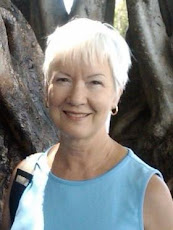

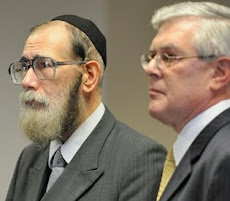

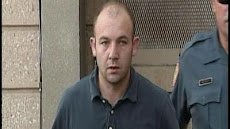









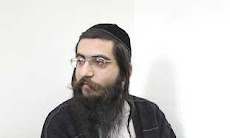





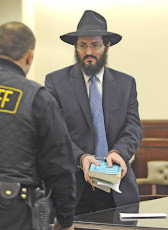














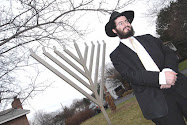




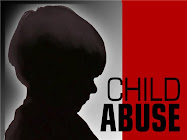



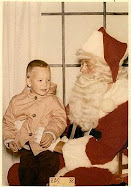









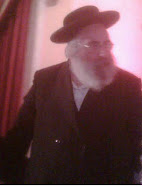



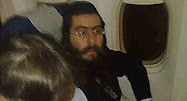




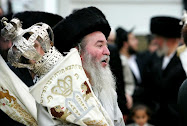


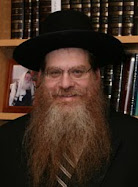












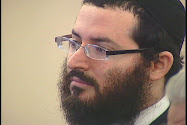
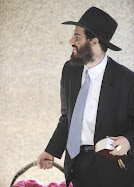
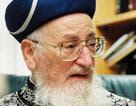









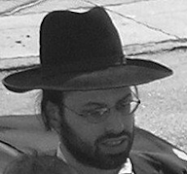

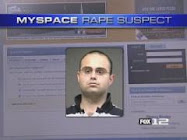









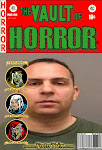












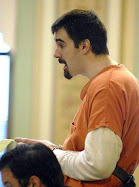


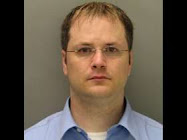


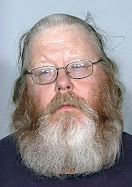

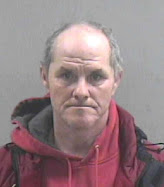
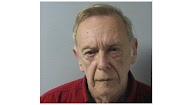
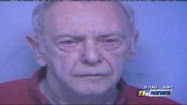













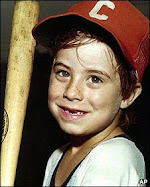

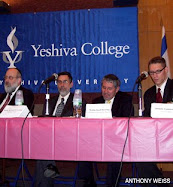
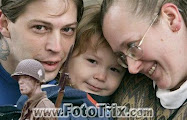




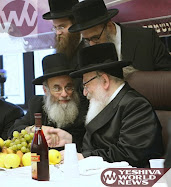
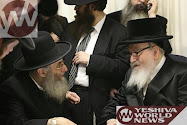
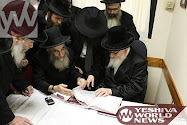






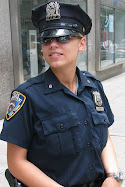


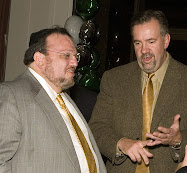
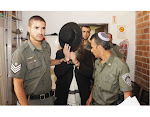



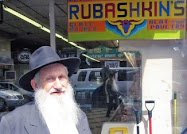















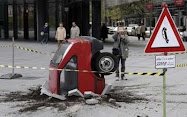










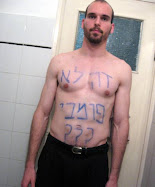
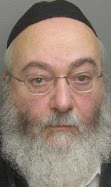

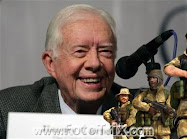










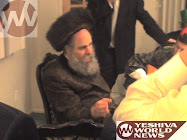






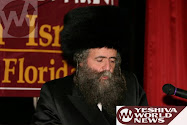


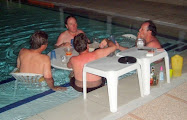

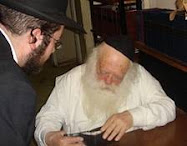

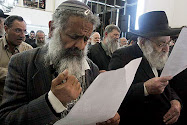
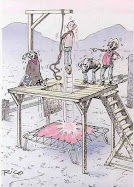
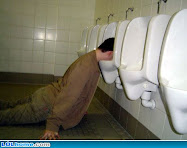



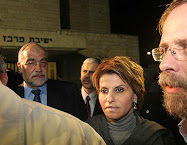
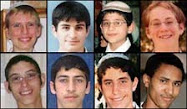
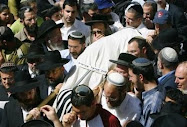
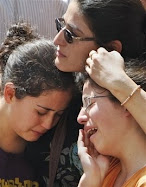
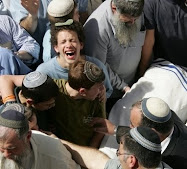
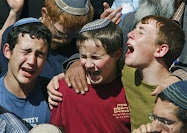
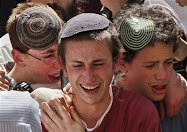
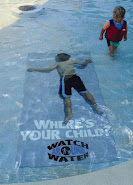

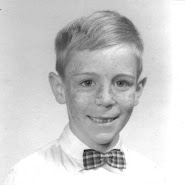







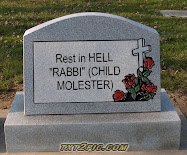
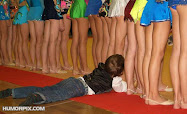







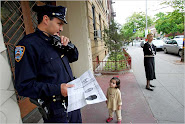















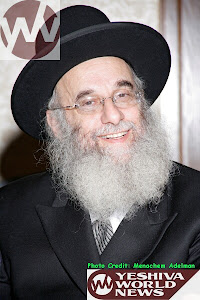
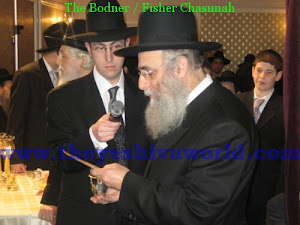
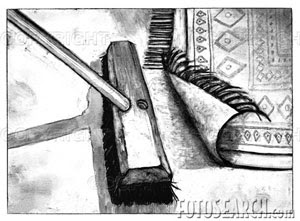
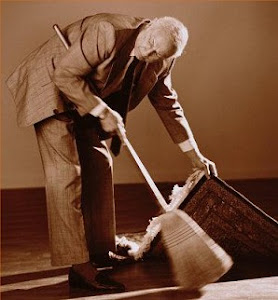








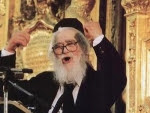
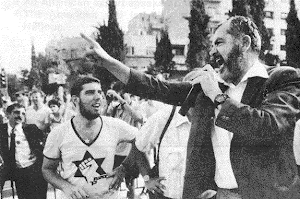
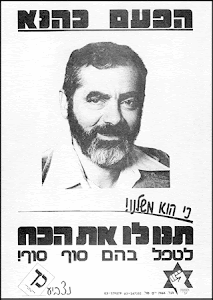
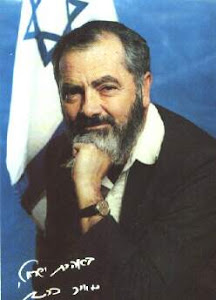
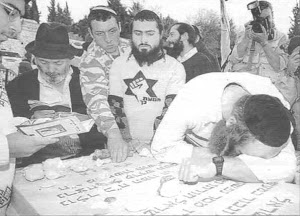
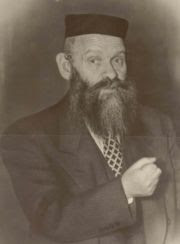




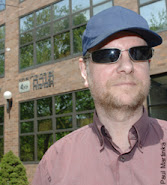


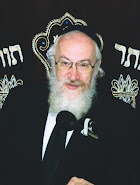





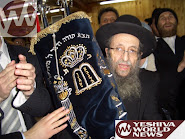

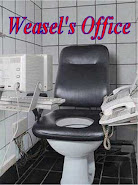

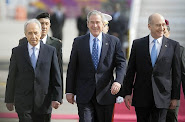
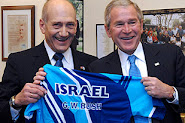
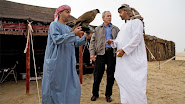


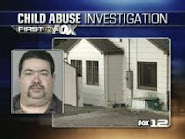
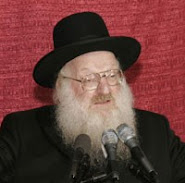

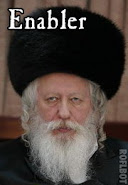


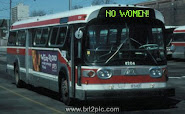










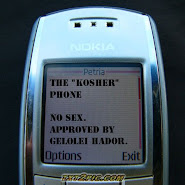





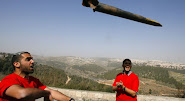
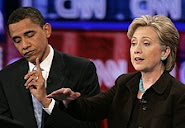


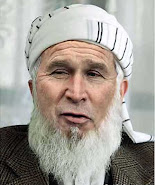









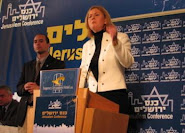


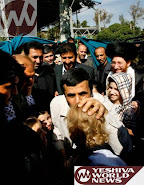
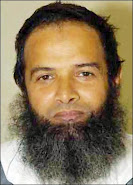


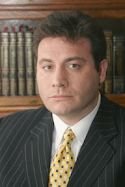


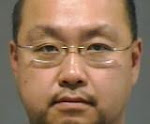
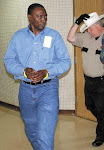

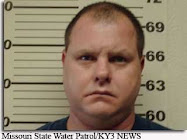



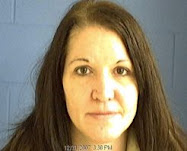
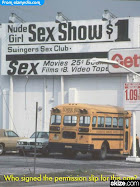

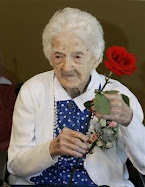
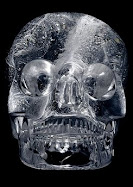
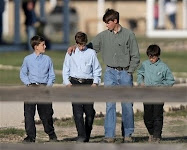



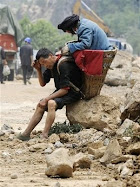



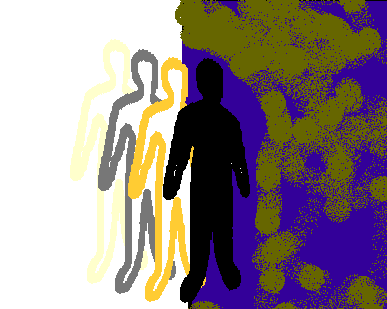

5 comments:
Letter from A concerned member of the Baltimore community
Protocols - November 9, 2004
http://protocols.blogspot.com/
The following has been circulated, and mailed to several different Jewish newspapers. As of today, no one has published it. Through my sources, I know who wrote this. The letter and its author are credible.
To the editors
I would like to address a very important and very troubling issue affecting our entire community and its future.
The taboo surrounding the issue of child sexual abuse in general, and even more so within our own community is very real and difficult to surmount for many reasons. Our silence is what child sexual offenders count on to enable them to continue abusing. We must break this silence and as a community begin to address this issue openly.
This sensitive issue becomes even harder to deal with when allegations are made against a rabbi or trusted leader within our community. Most of our rabbis and leaders are not child molesters, but most also have no training or expertise in this area. Most rabbonim confronted with allegations of abuse against a trusted and respected colleague are simply not equipped to deal with the situation. Obviously, they do not want to believe the allegations. It is a lot easier to stigmatize an obviously troubled or angry victim then to believe that a well respected, influential, colleague could be a sexual predator.
Instances of childhood sexual abuse are very hard to prove (or disprove), as there are rarely any witnesses, or visible scars. Training in recognizing the short and long-term effects affects of abuse is essential, and the responsibility of every Rabbi to obtain.
We have recently read stories of perpetrators within our community who have used the silence of the community and its leaders to allow them to continue abusing children, sometimes for decades. Some say that it is a chillul Hashem for papers to have published such information. The sad truth is that going to the papers is the only thing that finally stopped the abuser and prevented future victims. The real chillul Hashem is that many Rabbonim knew of allegations for years and did nothing. The real chillul Hashem is that when a sexual abuse or assault victim dares to speak out publicly, instead of helping the victim, and confronting the issue, Rabbonim and community leaders rally around the accused perpetrator trying to protect the image of the community at the expense of his victims.
Many of our "at risk teens" who have gone "off the derech" are victims of childhood sexual abuse and have gotten the message loud and clear that they will not be helped or believed, and so have left the community.
When allegations are brought against a person who is in a position of authority over innocent children this person should very quickly be directed to another line of work. To date there is no known cure for pedophiles. The only way to manage these tendencies is for perpetrators to never be alone with a child.
Parents have a right to know about allegations made against those caring for their children and to make an informed decision about the risks that they are willing to expose their children to. The Baltimore community must be made aware of and take responsibility for any accused perpetrators in our mist, especially when they hold positions that enable them to continue to offend.
Rabbi Eliezer Eisgrau, the principal of the Torah Institute, is one such individual. Rabbi Eisgrau has, on at least two known occasions, been accused of child sexual molestation and on at least one occasion of physical abuse. (He allegedly hit a child in the face and broke his glasses.) One of the accusations of sexual abuse was made by a former student, and the other by one of rabbi Eisgrau's own daughters. (Both of his alleged victims are now adults.)
The charges brought against Rabbi Eisgrau by his student were formally investigated and later dropped because of insufficient evidence. In the words of the investigator, Detective Richard Hardick, he was "stonewalled" by the community. Concerned and aware members of our community (including myself) who have tried to speak out about the potential danger to our children have been threatened with loss of their job, membership to shul, and even personal safety. Rabbi Eisgrau's rav has advised rabbi Eisgrau's other children to excommunicate their sister unless she agrees never to speak out about her experience. This, in my opinion, is a horrible chillul Hashem and abuse of rabbinic authority.
Let us, as a community, take responsibility for protecting our children and educating ourselves about sexual abuse. A good resource, which deals specifically with sexual abuse in the Jewish community, is The Awareness Center at, www. theawarenescenter.org.
Rabbi Yosef Blau (mashgiach Ruchani of the Rabbi Isacc Elchanan Theological Seminary) in his article, Confronting Abuse in The Orthodox Community, (Nefesh News, 7:9, July 2003) writes:
"Our community has not been educated to recognize abuse nor to appreciate the ongoing trauma of victims...Often the response is to express anger at the paper (publishing letters such as this one) and then ignore the abuse. Until the mentality of the community changes little progress will be made."
I hope everyone reading this will take his message to heart.
Sincerely,
A concerned member of the Baltimore community.
(Top)
A Story of Survival - Surviving Incest
© (2005) By Survivor of Rabbi Eliezer Eisgrau
The reason I am telling my story is because I want people, especially rabbis, to realize that when allegations of child abuse are made by a child against a parent, (regardless of whether the allegations are true or not) it is an indication of a serious problem in the family. When abuse is covered up and denied it is usually handed down to the next generation. Cutting off the family member who dares to expose the family's pain and shame does not make the problem go away. My family and I needed help and the rabbi's failed us. My family and I still need help and the rabbi's are still failing us. If I had a child who said I had sexually abused them, whether I thought I had or not, I would realize that there was a serious problem in my relationship with that child. I would do all I could to help my child understand what had happened. I would get my whole family help.
When most people in the orthodox community look at my family they see a normal family. Everyone is religious, married with kids, seems happy, and appears not only to be functioning well but also contributing to their community.
I come from a very large orthodox family. Most of my early childhood was spent in a small town on the east coast. My father met and married my mother there while he was a student at her father's yeshiva. My grandfather's yeshiva was in a remote area jewishly and otherwise, and we were very isolated. We did not go to school and had no contact with children outside of the family.
My father was physically abusive and sexually molested me repeatedly while we were living near my grandfather's yeshiva. I was also molested by some of the students in the yeshiva. I don't remember their names. My father stopped abusing me when we moved to Baltimore and he started teaching.
My grandfather was also inappropriate with me. He exposed himself to me once when I was three. When I was seven he had a serious discussion with me. He told me how lonely he was and ask me if I thought he should get remarried. At that age he told my sister and I that he loved one of us more than the other. I was sure it was she who he loved more than me.
I know that my grandfather physically abused my mother, (although she will insist that her experience was not abuse). She would get hit, for example, if she couldn't keep the baby from crying. My mother is the oldest of ten children. Her mother died of an illness when she was fifteen. She said that my grandfather always hit his children too much, but after her mother died it got worse. She told me that her brothers would try to protect her. My mother's brothers are the only safe men who I remember having close contact with in my childhood.
My father was physically abused by his mother. She would hold his nose to force him to swallow foods that he d. She would beat him with a broomstick. He was a troubled teen and was kicked out of more than one yeshiva. He told me that my grandfather rescued him, "pulled him from the garbage can." He shared with me his first encounter with my grandfather. He said that when my grandfather was speaking to him he raised his hand to make a point, and my father instinctively ducked under the table. He thought he was going to be hit.
My grandfather also rescued Aaron Goldberger. He had been expelled from a yeshiva for "homosexual behavior." Knowing his background, and despite many warnings, my grandfather allowed Goldberger to marry his daughter. Years later Goldberger was convicted of molesting his own children and lost custody of them as a result.
I was a troubled child and an angry teen for obvious reasons. I was also extremely depressed. My mother would tell me repeatedly that I had nothing to be sad or angry about and that I should put a smile on my face.
When I was in the fourth grade I discovered by that I needed glasses. A classmate had a pair and I tried them on just for fun. When the room jumped into focus I realized that I needed glasses. I told my mother who said, "No you don't need glasses, you see well enough." Her response was typical.
When my fifth grade teacher sent a note home asking my parents to get my eyes checked they finally took me to an eye doctor. The doctor assured my mother that he could see by the shape of my pupil that I was nearsighted but she was still unconvinced. She told me that I was getting glasses not because I needed them but to get the teacher off her back. My sister taunted me "you don't really need glasses you just want attention."
As a child I often wondered what I could possibly do to become real in my parent's eyes. I remember watching other children in school and wondering what it was about them that I was missing that allowed them to exist, and have real needs and feelings. I thought there was something inherently wrong with me.
When I was sixteen I left home to go to school in Israel. When the Gulf War broke out my parents forced me to come back home and refused to let me return to Israel. When I was eighteen I ran away from home and went back to Israel. My father came after me. He told me that the only reason he could think of that I could possibly have run away was that I had lesbian relationship with a friend whom I had met and become close to while in school there.
My father said that he wanted to help me and would take me to see a psychologist if I came home with him. He took me to his friend, Dr. Aviva Weisbord, who agreed to see me as a favor to him. (Apparently he had helped her with one of her children who had been having problems.)
Dr. Weisbord should never have taken me on as a client due to her obvious conflict of interest. She allowed me to come to her house during the course of therapy and sleep over. She violated confidentiality by meeting with my parents against my wishes. She violated confidentiality by telling people that I had been a client of hers and that in her "professional" opinion my father had not abused me.
During the course of my treatment with Dr. Weisbord she and I both realized that I had been sexually abused. She kept asking me about my uncle, Goldberger, whom I had contact with as a young child. I did not remember any specific instances of him abusing me. I did not tell her about my father. She was very willing to believe that my uncle, a convicted offender, abused me. But I knew she would not believe me about my father. She made it clear that she trusted and respected him. At some point she realized that I was hiding something. She told me that there were serious boundary issues in my family. That there were things that I wasn't sharing with her, and that she did not want to hear. She told me that she was ending our relationship and sending me to someone else.
My next therapist would not speak with my parents at all, and when my father found out that I was talking about the abuse he told me that I had to stop seeing her. He threatened to take her to a bais din for "convincing me of things that never happened." He told me that I was heading down a dangerous path. That reading books on the subject of abuse was putting ideas into my head. He told me that he was the only one who really loved that and me if I wasn't paying my therapist she would throw me out onto the street. That was the day I left my parents home.
I had nowhere to go. In desperation, I called a woman whom I had met only once, Hinda Goliger, and she invited me to come live with her. Many people including my parents, tried to pressure the Goligers to throw me out so I would be forced to go back home. The Goligers refused to bow to pressure. They promised me that their home would always be a safe place for me and it was. They were truly there for me when no one else was. They believed in me, and I will always be grateful.
The abuse by my father and others left me with many issues. But even worse than the actual and abuse was the revictimization that I encountered from my family, and community, when I tried to reach out for help.
No one would believe me that my father or my grandfather had done these things. My siblings were very angry with me and treated me like I had some horrible disease. My mother told me that she knew that nothing happened to me and that basically I was saying these things to get attention. One of my uncles told me that saying that my grandfather abused me meant that I d the Torah. Another Rabbi who I spoke with, after asking me for my grandfathers name, told me that it was my imagination that I had been sexually abused and that I should just forget about it and get married and everything would be fine. Once again I was being given the message that I was not real. My memories were not real. My feelings and experiences were not real.
During this time one of my brothers, then in his teens, forced a six-year-old in the neighborhood to expose herself to him. He threatened to hurt her if she didn't comply. The child's mother told me about the incident. She told my mother about it too. My mother's response was that she needed to talk to my brother about staying away from s, and that my father needed to learn with him more often.
I told my therapist about the incident. She informed me that what my brother had done was considered sexual abuse and that she was mandated to report it. I begged her not to. I knew that my family, who were already very upset with me for saying that my father abused me, would think that I had reported it. She finally agreed to ask her Rabbi, R' Menachem Goldberger, what to do. Rabbi Goldberger. told her to make the report which she did.
Another Rabbi who I turned to for help was Rabbi Moshe Heinemann. I did not know how to approach him. I decided to ask him a halachic question that had been bothering me for a while. It was a question that one of my aunts had asked me when I told her what my father had done to me. I asked him if I was allowed to marry a kohen if my father abused me. I was hoping that he would hear the inherent pain in my question and offer to help me. He asked if it happened before or after age three. I said after. He then told me that if I decided to say that it never happened then I could marry a kohen but if I said that it did happen then I couldn't. End of conversation. That was the only time that I spoke with Rabbi Heinemann about this, or anything else. Some years later parents of a child in the Torah Institute went to ask Rabbi Heinemann about the allegations against my father. He told them to disregard what I said as I was, "crazy and not frum."
I went to other Rabbi's for help and I was told, "we know sexual abusers exists in our community but we know that your father is not one of them."
I already felt inherently damaged, and traumatized, as a result of the sexual abuse but the way my family and the rabbi's were treating me made the pain unbearable. Like all survivors of trauma I needed to talk about what happened to me in order to process it and heal. I needed (and still need) my truth to be heard. My family did not understand this and accused me of trying to hurt them by telling people about it.
I thought that because no one believed me I must be crazy. I wanted to believe that my family was right and I was sick or evil but deep down I knew that I wasn't and that I was remembering these things because they had happened to me.
I was in a tremendous amount of psychological pain. I often begged God to remove me from this world. I wanted to die to find out the truth. And I wanted to escape the pain. I attempted and was hospitalized. During my hospitalization I was diagnosed with a dissociative disorder (that I have since recovered from) whose only known cause is severe and repeated trauma in early childhood. I was also diagnosed with PTSD (post traumatic stress disorder.)
While all this was going on I was teaching preschool at the Torah Institute. The preschool director was shocked when I told her that I was quitting because I was suicidal and needed to be hospitalized. She simply couldn't believe it. She said that I was doing a great job teaching and that she thought I was the most `together' of all my sisters. I told her that my family specialized in seeming `normal' and `together' and that I was good at it, but I was tired of pretending to be ok. I needed help.
At first the director said that she believed me that my father had sexually abused me. She told me that she knew more than one rebbe at the Torah Institute with sexual issues. She wanted to be supportive but at the same time she begged me to consider the damage that speaking about my experience would cause my siblings. She told me I could ruin my sister's chances of getting a shidduch if I didn't keep quiet.
She offered to let me stay with her for a couple of weeks while I waited for a bed to open up on the dissociative disorders unit. During this stay she changed her mind and told me that although it was obvious to her that my parents had caused me severe emotional damage, she just couldn't believe that my father had physically molested me.
During one of my many hospitalizations Rabbi Yaakov Hopfer came to visit me. I told him about the memories that I had of my father molesting me. I told him that I hoped my family and everyone else was right about me and that somehow my mind was playing cruel tricks on me. It was easier for me to believe that I was crazy then to believe that my father did these things to me. I wanted my family back.
Eventually, I rented my own apartment and applied for another job in a new preschool that was opening up in the community. I was hired as a teacher for the three-year-old class. A few weeks before the start of the school year the director informed me that some people in the community threatened not to send their children to her school if I was going to be teaching there. They told her that there must be something wrong with me because I had moved out of my parents home. This woman, not knowing that there was a connection between us, asked Dr. Aviva Weisbord for advice. Dr. Aviva Weisbord told her not to let me teach but to give me a job in a back office so that no one would know I was there.
I became completely disillusioned with yidishkeit because of the way I was being treated by the community and my family. People who should have been helping me were calling me crazy and evil. I wanted nothing to do with any of it anymore. I stopped keeping shabbos and kosher. I had to find a new way to relate to God. I also had to find a new God. One who had not allowed me to be abused in a yeshiva and by people who were supposed to be frum and uphold the Torah. A God who was all knowing and all loving and believed in me and wanted me to heal. I had to leave yidishkeit to find this.
I explored other religions. I spoke to priests, ministers. I came back to Judaism, mostly because I missed shabbos. I had to come to the realization that my parents and the Rabbi's who hurt me did not own God or Judaism and that their behavior had nothing to do with Torah. Although I am now shomer mitzvoth, to this day I can never completely trust a rabbi. And I doubt I will never feel completely safe or comfortable in the frum world.
About eight years after my conversation with Rabbi Hopfer my father became the principal of the Torah Institute. I had received excellent help in the trauma disorders day hospital at Sheppard Pratt and had with much effort pulled my shattered life back together. The chronic depression and psychological pain that I had carried around with me for as long as I could remember slowly dissipated as I worked through the traumatic memories. I was in school. I was working. I met and married a wonderful man. I gave birth to a baby. I was very happy. Every day felt like a miracle.
I was very concerned when I heard that a former student had accused my father of child abuse. I had thought/hoped that his abuse had stopped with me. It suddenly occurred to me that maybe the reason the abuse stopped when we moved to Baltimore was because my father had access to other children.
I told a parent of a child in the school that I was concerned that my father was not safe around children. It got back to my siblings and they went to Rabbi Hopfer for advice. Rabbi Hopfer told my siblings to give me an ultimatum. I was to promise never to talk about what my father did to me, or they would cut me out of the family. I told them there was no way I could ethically promise that.
I wrote Rabbi Hopfer a letter asking him why he had not contacted me before he gave my family this advice. He did not respond. Some months later I called him up several times, and finally he called back. I asked him why he had not contacted me before telling my family to cut me off. He became very defensive and angrily asked me why I believed that my fathers other accuser was credible? Why had I not bothered to check it out?
I told Rabbi Hopfer that I had checked it out and that although I was not in the room and could never know what really happened to this student, that based on my own experiences with my father I believed that it was possible that he had abused again.
I told Rabbi Hopfer that I wished that he and my family would also admit that they were not in the room when my father was abusing me and could never be completely sure what my father had done to me.
I asked him again why he had not contacted me. He said he had already spoken to me eight years earlier when he had visited me in the hospital.
Me: I am a different person now, in a totally different place then I was eight years ago. I was going through a serious crisis then. A lot has changed. I think you should have realized that and called me. Do you remember our conversation in the hospital?
Hopfer: No.
Me: So you made the decision to break up a family based on a conversation you had eight years ago that you don't remember?
Hopfer: I made my decision then that you were not credible and I stuck with it.
Me: I think you should have contacted me. Why don't you believe me about my father? Do you think I am crazy or evil?
Hopfer: No, but your siblings say that your story is inconsistent. First you said your uncle abused you, then your grandfather, then your father.
Me: When I first started dealing with this, I did not want to believe that my father abused me. Like you, I would rather have believed just about anything else. My therapist at the time wanted me to think it was my uncle.
Hopfer: Your own therapist doesn't believe you.
Me: The only therapist I worked with who is unethical enough to break confidentiality and speak to you about what she believes and doesn't believe about me, is Dr. Weisbord and she is also a friend of my father.
I'm trying to understand why you would advise my family to do such a terrible thing? What good could this possibly accomplish?
Hopfer: They have too choose between you and your father. They can't be loyal to both of you. They can't stand seeing the pain you are causing him.
Me: I wonder why you and my family are so focused on my fathers pain, which I didn't cause, yet no one seems to worry about my pain. I have lost my entire family because of this. And you have ruined any chances of my family taking any responsibility in dealing with this. Any chance of healing our relationship. If they want to cut me out let them at least own their own decision. Don't you realize that they take your advise as a psak, as da'as torah?
Hopfer: Yes. I realized that.
Me: would you consider changing your ruling.
Hopfer: No, I still think they have to choose.
Me: Is it because you don't believe me, that my father sexually abused me?
Hopfer: Yes, I don't believe that he did that.
Me: How can you be objective about this considering that you trust my father so much? He has taken over your shiurim for you when you are out of town. He has taught your children. Don't you think it would have been more responsible to send my family to someone else for advice about this? Someone who is not so close to the situation?
Hopfer: I believe that I made the correct decision.
In the end my father is still the principal of an elementary school. If the Rabbi's in Baltimore care at all about the safety of the children in their community they would insist that my father be evaluated by a professional who is trained to evaluate potential offenders. If they continue to try to "protect" him and demonize, discredit, and isolate me, they are continuing to perpetuate a tremendous evil for themselves and their community. They share some of the responsibility for the horrors I went through and they will be responsible for any new victims of abuse by my father.
I am still treated like I do not exist by my family. I don't know which of my siblings are married, and I have not been told of any births or s that have occurred.
I am still looking for a rabbi who is willing to stand up for me and challenge Rabbi Yaakov Hopfer to take a second look at what he is doing to me and to my family. Whatever the outcome, it would help me heal my relationship with Judaism to know that there is someone representing Torah who is willing to stand up for what is right.
"Rabbi" Yaakov Hopfer and "Rabbi" Moshe Heinemann. YOU DISGRACE G-D'S HOLY NAME. You are both in dereliction of your duty, and will be held accountable for your putrid sins.
Your noncompliance in dealing with abuse is quite compelling and damning to your character. DROP DEAD; SOONER RATHER THAN LATER!
Elliot Pasik deserves much recognition and credit for his role in helping victims of abuse. I salute his efforts.
Taken from the Jewish Press
How To Eradicate Abuse In Our Communities
By: Elliot B. Pasik Wednesday, April 25, 2007
Amid all the recent bad news about our child sex abuse problem in New York, Baltimore, and elsewhere, permit me to be so bold as to suggest there is a glimmer of good news and hope.
The latest situation in Baltimore is, once again, a textbook example of our communal failure to protect children from predators who have insidiously invaded our yeshivas, synagogues, and even our homes where they tutor children. Earlier this month, Phil Jacobs, executive editor of the Baltimore Jewish Times, reported that a yeshiva principal essentially lived a double-life as a sexual abuser of hundreds of children.
The principal, who died in 1989, was also a synagogue rabbi, guidance counselor, and yeshiva dorm counselor. His victims, some now in their 60s, regularly meet in support groups where they wonder how their lives would have been different had they not been abused.
Three victims went public, identified themselves by name, and spoke to Mr. Jacobs. One victim, now a yoga instructor in Florida, began to explore various Eastern faiths, was briefly married to a non-Jewish woman, and raised his child non-Jewish. ”I am basically anti-Semitic,” he says. ”I like Jews, but I just need to stay away from them.... There’s always been a lot of fear and anger in my life that comes as a result of [the rabbi’s] actions. There’s never a time that passes that I don’t think about him. There’s anger and there’s fear.”
This devastating article has, at long last, inspired a communal Jewish response. The Rabbinical Council of Greater Baltimore issued a public letter the day the article appeared. The rabbis’ letter is a remarkable mea culpa, and I will quote one key passage at length:
The damage that abuse can cause is devastating and potentially life altering; it commonly ruins an individual’s sense of self, their ability to trust others, and their ability to engage in a healthy intimate relationship. Furthermore, there is a growing consensus amongst mental health professionals serving the observant community that many of our “teens-at-risk” issues were generated by incidents of abuse. The risks of suicide, alcohol and drug abuse and other self-destructive behaviors are all increased dramatically by abuse.
As such it is already well established by our own poskim that an abuser is to be considered a rodef (literally, a “pursuer”), effectively poised to destroy innocent lives and, therefore, virtually all means may be used to stop him and bring him to justice. Communities and day schools – with the blessing of Gedolei Yisroel – have encouraged and facilitated the reporting of these crimes to the local authorities, who are most equipped to investigate and prosecute these complex claims.
In the past, many mistakes were made in handling these situations. Abusers were often not recognized for what they were, as it was too difficult to believe that otherwise good people could do such things, nor was it sufficiently appreciated what damage such acts could cause. It was often thought that if the abuser was spoken to or warned, and perhaps moved to a different environment, he would never do these things again. In responding this way many terrible mistakes were made and tragic consequences resulted. We have seen too often the immediate or eventual failure of these “behind-the-scenes agreements” to keep the perpetrators away from others. Naïveté and a lack of understanding of the insidious nature of these perpetrators have allowed the toll of victims to rise. These failures haunt us – but they also motivate us to respond more effectively and wisely in the future.
Could the latest case in Baltimore have been avoided? And the cases in Brooklyn, Lakewood, Chicago, Los Angeles, and other locales where abusers, masquerading as rabbis, teachers, and camp counselors, have been known to prey?
The remarkable answer is yes – through the rule of American law, which is consistent with our own cherished Jewish values of exercising extraordinary efforts to preserve human life. Lo ta’amod al dam ra’echa – Do not stand upon the blood of your brother (Leviticus 19:16). This Torah verse requires that we not close our eyes to a drowning boy or girl but jump in with a life preserver.
Where the masses are affected, there is a principle in halacha that great precautions are taken to preserve health and safety. The Rambam rules that dangerous businesses be placed outside a city. Perhaps we can learn, kal v’chamor, how much more so is this true for protecting children from danger in our schools, synagogues, and homes.
Child protection laws in the U.S. vary from state to state, particularly as they relate to yeshivas and nonpublic schools, but in the main they include the following:
● Corporal punishment and sexual touching are illegal.
● Fingerprinting and criminal background checks are required of all employees.
● Mandatory reporting to government authorities of sex abuse and violent incidents.
● State registries of all school employees found guilty of sex abuse or violence.
I am a lawyer who for the past few years has been advocating that our yeshivas comply with all existing child protection laws and, where needed, that our states enact new laws. Sadly, my efforts have been met with apathy, indifference, negativity and cynicism. I call this the “m’raglim” attitude.
The m’raglim were the spies who returned to Moshe and the Jews with a negative report about the Land of Canaan. The people there are giants, they said, and we are like grasshoppers. With the exception of Yehoshua Bin Nun and Kalev Ben Yefuneh, the spies had given up the fight before it even began, and for this we Jews received great punishment. Rashi calls the spies r’shaim, evil ones. A negative attitude can be the cause of a great downfall.
The legal scene in New York is, quite frankly, not a strong one for nonpublic-school children. Last year, however, it was made a little bit stronger when our State Legislature passed a new law that – for the first time in 70 years – “authorizes” our nonpublic schools to fingerprint and background-check their employees. (A state labor law, in effect since 1937, bars private employers from fingerprinting employees unless another law allows or requires it.)
The key word is “authorizes.” The new law, unlike laws in other states, does not require fingerprinting – that’s something left to the discretion of individual yeshivas and other nonpublic schools.
This year, my new group-in-formation, the New York State Yeshiva Parents Association, is asking for more new laws. In February, we sent letters to selected legislative leaders and Governor Spitzer asking for mandatory fingerprinting so that our schools will no longer employ convicted sex offenders and other dangerous criminals. (The legislative leaders include Assembly Speaker Silver, and, in the Senate, Majority Leader Bruno, Deputy Majority Leader Skelos, and Education Committee Chairman Saland.)
We also asked for a mandatory reporting law. In 25 states – New York is not one of them – all clergy are mandated reporters, required to report evidence of sex abuse or violence to child welfare authorities. In 18 states – and this is remarkable – all persons who reasonably suspect child abuse are mandated reporters. But again, not in New York.
In New York, public school officials are mandated reporters, but not nonpublic school employees. Thus, New York is among the small minority of states whose laws do not require nonpublic, religious schools to report sex abuse to state child welfare authorities.
My February 2007 letter to the State Legislature makes a modest proposal. We are asking for neither an “all person” nor an “all clergy” mandatory reporting law – just one for nonpublic-school employees. In this manner, we hope to create a consensus and avoid an inevitable confrontation with ultra-conservative elements who would object to a broad mandatory reporting law.
Who, after all, could reasonably object to a law that essentially establishes every school, public and nonpublic, in our state as a safe oasis for children? Such a law would be entirely consistent with the ancient common-law doctrine of in loco parentis (Latin for “in place of the parent”). When a school assumes physical custody of a child, it is in loco parentis, and owes the same high duty of care that a parent ordinarily owes a child.
Finally, my letter asks for a nonpublic-school disciplinary system that is comparable to the public school system. All nonpublic schools should be required to have child safety and abuse prevention plans. All nonpublic-school employees should be registered with the State Education Department, and when credible complaints of abuse or violence are filed, disciplinary hearings should be held. Our yeshivas have no such apparatus, and it is thus no surprise that sexual predators have been known to move from one yeshiva to another.
I have asked our major frum organizations – the Rabbinical Council of America, the Orthodox Union, and Agudath Israel – for their support of these latest proposals. So far, there has been silence.
The RCA is holding its annual convention from April 29 through May 1 at the Jewish Heritage Museum in Manhattan. I have submitted a proposed resolution – as I did at the RCA’s 2005 convention for the then-yet to-be-passed background check law – in support of the new laws proposed in my February letter to the Legislature and in this article.
You can make a difference by e-mailing RCA officials your thoughts (see the “Contact Us” section on the RCA website at www.rabbis.org). You can also make a difference by e-mailing New York’s legislative leaders from the websites of the State Assembly and Senate.
Let your voice be heard, so that when God asks Ayeka? – when He asks where you stand in the battle to protect our children’s bodies and souls – you can answer without guilt or self-doubt.
Elliot Pasik is an attorney in private practice in Manhattan. He may be reached at efpasik@aol.com.
('A Story of Survival - Surviving Incest
By Survivor of Rabbi Eliezer Eisgrau')
Dear Survivor,
I am filled with sadness for the pain and suffering you were and still are going through. My heart is crying for you.
Your father is an evil piece of drek. I commend you on your courage to write about the times you were sexually abused by your own wicked father and grandfather. By doing so, you are alerting and saving potential future victims from the horrors that you endured.
You are a very brave, bold, kind, and extremely sane human being. You are also a tremendous inspiration to other survivors of sexual abuse.
You have been let down, abandoned, and practically spit upon by those incompetent "Rabbi's", and also by Dr. Weisbord, whom has violated every conceivable law, especially the part of not reporting the abuse to the proper authorities as mandated by law.
They crucify Judiasim, are masquerading in their religious garb - passing pasks of forbidding the use of the internet in the Jewish home, and how loud the music is allowed to be at a wedding, and what you can/cannot eat. It's absolutely atrocious. These manipulators of the truth; are the so-called 'dass torah' that people are supposed to depend and rely on?
May G-D grant you all that is good. Keep strong, there are many here who are rooting hard for you.
EM
http://theunorthodoxjew.blogspot.com/
Anonymous said...
All Kosher consumers should stay away from products bearing the Star-K emblem. The primary concern is regarding the business ethics and poor judgement of the certifying rabbi, Rabbi Heineman of Baltimore.
Galil Chicken > Star-K supervision
Yudel Shain challenged Rabbi Heineman that the Galil shechita method is highly problematic. Rabbi Heineman categorically denied these assertions. Yudel called up Rabbi Avrohom Rubin from Yerushalayim to analyze the Galil method and comment on its Kosher percentage rate. Rabbi Rubin wrote a scathing report about the Galil/Heineman method.
Rabbi Heineman faxed Rabbi Rubin a FORGED, DOCTORED report. Rabbi Rubin told Rabbi Heineman that the report is not the report he wrote, but a forged document. Rabbi Rubin contacted Rabbi Genack (OU) and expressed concern about Rabbi Heineman’s ethical business practices.
Glatthouse Meats > NK supervision
Glatthouse owner was Moish Finkel (the same owner as Shevach Meat). Yudel investigated Glatthouse after the products arrived at the Shoprite Kosher Experience in Lakewood. He told everyone that Mr. Finkel and Glatthouse could not be trusted. Rabbi Lipshutz (NK) and Rabbi Gavriel Finkel a Posek in Lakewood attempted to smear Yudel’s name, as well as vouch for the ethical integrity of Mr. Finkel.
Glatthouse tried to expand into the Baltimore market as well. Based on Yudel’s investigation, Rabbi Heineman refused entry of any Glatthouse product into his store. After hearing Yudel’s report he was so horrified, he called up Ner Yisroel and told them not to allow the product into the Yeshiva, they asked why, and he said Mr. Finkel is not ehrlich and cannot be trusted. Glatthouse closed down, and opened as Shevach under Rabbi Breslauer.
Rabbi Heineman’s nephew is Naphtoli Heineman, president of Rabbi Breslauer’s shul. At no time did Rabbi Heineman attempt to alert his nephew or Rabbi Breslauer that they are giving a hechsher to a fraudulent product. All Kosher observing people should fault Rabbi Heineman. He knew the information, hid the information, and watched thousands of people suffer because of his poor judgment.
His behaviors in regard to the Baltimore abuse scandal again indicate poor judgement, as well as unethical behavior.
1:43 PM, April 26, 2007
Post a Comment